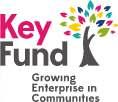



















Workshops, Training and Bespoke Sessions






We are a non-profit organisation that challenges perceptions by providing social inclusion workshops, led by those affected by these issues to offer real, experience-led sessions that educate the public.
We cover a wide range of topics dealing with issues identified by education professionals, Ofsted and the government as current concerns within schools, businesses and our wider society.



Diversify's approach is interactive, tailoring materials to the age of our audience when working with pupils and to the particular focus of the group when delivering to adults.
Created and presented by adults with real-life experiences of the topics delivered and using a variety of interactive methods, Diversify break down negative perceptions within society and work to build a cohesive environment.


Diversify ensure that businesses have the tools that are necessary to achieve inclusion and equality in the workplace: the what, the why and the how.


These tools remove the mystery, myths and uncertainty that surround inclusion and equality in the workplace. We work to give a unique perspective paralleled with practical work experience to ensure strategies, objectives and implementations are achievable and smart.
Our experienced staff provide in-house training to businesses, in a wide range of industries and organisations. We are happy to work with you to develop bespoke sessions on particular topics, and/or to deliver via webinar where the framework of the course allows.





Mental health and work performance go hand in hand. When an adult is in good mental health, they will generally feel confident, content, and happy with high self-esteem. This will keep them focused and motivated in the work environment and be able to overcome challenges and set goals for the future.



Sadly, many people will develop mental health issues during their life. Some may be afflicted for a short time, lasting weeks or months, while others will suffer for years and may never fully recover.
Mental health problems rarely strike someone down overnight. There may or may not be a trigger, such as a bereavement or a negative social experience, that starts things off, but symptoms generally build up gradually until that person reaches a crisis point.


Diversifys’ Mental Health and Positive Thinking workshops can help people to recognise the early signs of deteriorating mental health, in themselves and others, enabling them to take appropriate action before problems get out of hand. We offer a series of sessions that can be connected to create a truly bespoke experience for your staff.
Emotional Resilience
How to be A Supportive Friend
Healthy Relationships
Anger Management
Body Image & Low Self Esteem
Positive Thinking & Believing in Yourself


Confidence Building
Peer Pressure
Healthy Sleeping Patterns
Coping Skills for Dealing With Anger, Anxiety and Stress
Exam Stress
Mindfulness
Mental health Awareness and Signposting





LGBTQ+ inclusion in the workplace is fast becoming a priority for organisations of all sizes across the UK. LGBTQ+ inclusivity offers a distinct competitive advantage for all organisations.


What are the benefits of LGBTQ+ inclusion in the workplace?
The benefits to an LGBTQ+ inclusive workplace extend beyond that of making sure employees of all sexualities and gender expressions feel safe and valid. LGBTQ+ inclusive workplaces benefit your businesses too.


Having robust inclusion strategies in place for LGBTQ+ staff make sense from a business perspective as well as a moral standpoint. Employees will feel less stressed and more productive as respected members of a cohesive team.























Our training covers the following topics:


Strategies for LGBTQ+ inclusion in the workplace.


Review your policies for LGBTQ+ inclusionLGBTQ+ inclusion should be a core part of your Equality and Diversity policy. Diversify will ensure all your policies are LGBTQ+ inclusive, for example, your policies on parental leave, adoption, and pensions.
How to provide LGBTQ+ training - Offering LGBTQ+ training in the workplace as part of equality and diversity training can be a powerful way to educate everyone about LGBTQ+ issues. Providing this helps ensure your policies are heard and understood across the organisation.




How to set up an LGBTQ+ networkCreating an LGBTQ+ network can be a great way to support LGBTQ+ staff. A network means LGBTQ+ employees can meet in a safe space within their place of work to relate to one another. As a focus group, network members can also help you identify and improve upon issues affecting LGBT+ staff, so you can continually improve your approach.







How to appoint LGBTQ+ allies - Are there non-LGBTQ+ people in your workplace who are passionate about or interested in LGBTQ+ rights? Get them on board as an LGBTQ+ ally; they can champion LGBTQ+ inclusion in the workplace and act as a source of support for LGBTQ+ staff.
Learn how to incorporate gender-neutral language - Gender-neutral language avoids bias towards a particular gender. Using 'they' instead of 'he/she' in contracts and other company documentation is a good step towards this, as is monitoring ongoing communications for genderneutrality.





Create unisex toilets - Whenever possible, there should be a gender-neutral bathroom option, particularly if you provide singular toilets. Unisex bathrooms are more inclusive for Trans and non-binary people, who can feel intimidated when having to use single-sex toilets. Beyond this, unisex toilets are also cheaper to build.






Every person, regardless of their ethnicity or background, should be able to fulfil their potential at work. The need to create more diverse and inclusive workplaces has been recognised but not acted on for too long.
Too many individuals from an ethnic minority background still face discrimination and disadvantage when trying to get into and progress at work compared with their white British peers.



Addressing this issue is not just about tackling discrimination; it is also about boosting business performance. The economy stands to gain an additional £24 billion if there was a full representation of black, Asian and minority ethnic individuals in the workplace.

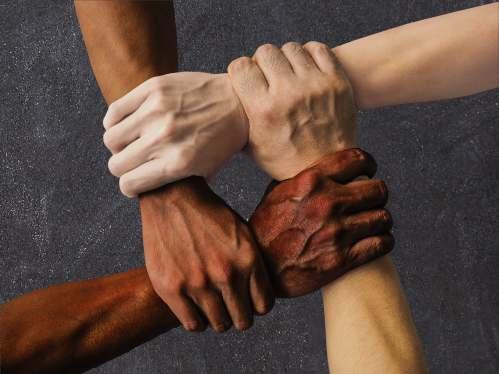






Diversify's Race inclusion training will cover the following topics:
How to attract a broader, more diverse talent pool and boost innovation and customer service by developing a workforce that is more reflective of the organisation's customer base and society.



How to identify levels of ethnic diversity - we will explore any structural and cultural barriers that are maintaining workplace inequalities.
How to avoid generalisations- 'BAME' encompasses a wide range of backgrounds, cultures and traditions and many different barriers to career progression.

How to review recruitment practices to eliminate bias and discrimination- This will include how and where employers recruit new workers, whether the images and language used in recruitment materials are inclusive, line manager interview practices and the approach of recruiters working on employers' behalf.



Review people processes to retain diversityIdentify barriers in career progression and 'cliff edges' where employees leave and address this.
How to build an inclusive culture- Explore whether policies and practices are underpinned by principles that actively celebrate and encourage difference







Sex discrimination in the workplace has been unlawful for more than four decades. However, it continues to be an issue, and sexual harassment and pregnancy and maternity discrimination remain serious problems.
Women are much more likely than men to be subject to sexual harassment at work. 2017 research suggests that four in ten women had experienced some form of unwanted sexual behaviour in the workplace. Around one in nine mothers (11%) reported that they were either dismissed, made compulsorily redundant (where others in their workplace were not), or treated so poorly they felt they had to leave their job.


The gender pay gap in the UK currently stands at 17.3%: If not addressed, this gap not only disadvantages individuals but means employers miss out on a wealth of talent as they risk their reputation as a fair and inclusive employer. Gender pay gap reporting has brought transparency to workplace gender equality issues that need addressing, but it's the action that follows that makes the real difference.



















Diversify's Sex discrimination in the workplace workshop covers the following topics:
How to take positive steps to ensure that women are paid and treated equally in the workplace and demonstrate a zero-tolerance approach to all forms of discrimination and harassment.



How to train managers to manage people effectively- This includes the importance of leading by example, proactively tackling conflict or inappropriate behaviour, how to take formal disciplinary action.
Interrogate your staff data to identify barriers in career progression and 'cliff edges' where employees leave and address this.


How to improve workplace flexibility for men and women by designing more flexible jobs and training of line managers to manage workers.


Review of policies on flexible working and parental and carers leave.
How to encourage a culture where people feel comfortable and confident to request paternity leave and shared parental leave.





Currently, 3.4 million disabled people occupy the workplace.



Whether that be with a hidden disability or a physical disability, companies are likely to have disabled people working for them, even if they are unaware. While that figure sounds staggering, there are over 11 million disabled people of working age in the UK and are more than twice as likely to be unemployed as non-disabled people. Why is this? One of the reasons could be that Disabled people are significantly more likely to experience unfair treatment at work than non-disabled people.
In 2016, 29% of disabled people experienced unfair treatment at work compared to 13% of non-disabled people


Unfortunately, discrimination does not just occur in the workplace. Below are some examples of where else it happens.


Around a third of disabled people experience difficulties related to their impairment in accessing public, commercial and leisure goods and services.
Around a fifth of disabled people report having difficulties related to their impairment or disability in accessing transport.







Disabled people are significantly more likely to be victims of crime than non-disabled people. This gap is most significant amongst 16-34-year-olds, where 39% of disabled people reported having been a victim of crime compared to 28% of non-disabled people.
Disabled people are around three times as likely not to hold any qualifications compared to non-disabled people, and about half as likely to have a degree-level qualification.


19.2% of working-age disabled people do not hold any formal qualification, compared to 6.5% of working-age non-disabled people
14.9% of working-age disabled people hold degree-level qualifications compared to 28.1% of working-age non-disabled people.




While people are becoming more aware and educated, more needs to be done and can be done with Diversify's help.







Diversify has created a range of workshops which are designed to develop an understanding of disability and fundamentally, how to support disabled employees, customers and clients.
The workshops are designed as interactive sessions where participants can explore and develop their thinking. Every workshop is adapted to suit the groups specific learning needs and outcomes. The courses are designed to be thought-provoking and will offer practical solutions to some of the most challenging issues.























This workshop supports participants to understand how to create documents and content across all platforms that are accessible to more people.

Disabled or handicapped?
Society is everevolving, and words can become derogative and outdated. When we use these phrases, what do we mean?








Are we purely descriptive? Or do we intend them as derogative terms?
In this workshop, we will explore terms to describe disability and difference and provide the opportunity to create phrases that will be inclusive of all.









This workshop will challenge your thinking, give perspective and help overcome the barriers that face disabled employees and customers. Below is a brief overview of what the workshop will cover. The medical model of disability views disability as a 'problem' that belongs to the disabled individual (University of Leicester). It is not seen as an issue to concern anyone other than the individual affected. For example, if a wheelchair-using student is unable to get into a building because of some steps, the medical model would suggest that this is because of the wheelchair, rather than the steps.
The social model of disability (University of Leicester), in contrast, would see the steps as the disabling barrier. This model draws on the idea that it is the society that disables people, through designing everything to meet the needs of most people who are not disabled. There is recognition within the social model that there is a great deal society can do to reduce, and ultimately remove, some of these disabling barriers, and that this task is the responsibility of society, rather than the disabled person. By incorporating this model into organisations it would give employers the ability to support their disabled staff in a more inclusive and supportive manner, ultimately taking down the barriers that their disabled employees and customers face.










Disabled or handicapped? Society is ever evolving and words can become derogatory and outdated. When we use these phrases what do we mean? Are we being purely descriptive, or do we mean them as derogatory terms?
In this workshop we take a comprehensive look at the language surrounding disability. Delegates will leave with a clear understanding between inclusive language and political correctness.

























This workshop is designed to explain to businesses that they cannot afford to be inaccessible to disabled people. According to the BBC, the spending power of disabled people in the UK is £249bn per annum, and this is the 'purple pound'.



Businesses cannot afford to have disabled people going elsewhere to a venue, website or business that is more convenient. Accessibility encompasses every cornerstone of a business. From navigating a website to moving around a place, statistics have shown that one of the most common barriers in accessing a service is the inexperienced staff. By taking this workshop, businesses will be equipped with the tools to ensure their customer service becomes exceptional.







Having an awareness of disability and the confidence to hire and support disabled people is very important. These packages are bespoke to the organisations and aim to ensure they feel supported and confident enough to work with disabled people.
Whether this is a recruitment consultant trying to attract disabled candidates, an employer understanding how to support a disabled employee or an HR specialist coming to terms with reasonable adjustments, these will instil organisations with the confidence and knowledge to succeed in their goals.











Eight simple reasons to use our workshops:



Disabled people occupy 18% of the workplace. Whether it be a hidden disability or a physical disability, you are likely to have disabled people working for you even if you are unaware.
A minuscule number - 4% of reasonable adjustments (workplace adjustments) have a financial implication. Most are resolved by conversation, awareness and organisation attitude.


The two most commonly stated enablers for employment among disabled people are modified hours/days or reduced working hours and access to transport.



The top 3 types of workplace discrimination identified by disabled employees are: being given fewer responsibilities (19%), not being promoted (14%) and being refused a job (23%)





It is argued that disabled people who are happy and supported at work will be more likely to stay, will take less time off and will be great company advocates.
The spending power of disabled people (The Purple Pound) is over £249bn per year. It could be argued that business owners simply cannot afford not to be 360° accessible.



Disabled customers tend to take longer when choosing to buy according to the ONS. The main decision factors underpinning customer choice are the experience of excellent service and reputation for good service.




Inaccessible premises, websites, telephone systems and printed information, poor customer service, lack of awareness, inadequate communication, are the main reasons for disabled customers tending to swap to a business' competitor.




Diversify are a Level 3 Disability Confident Leader, and as such are able to help other employers to reach this level, and beyond.
Diversify offers support through our expertise and lived experience, using detailed analysis, advice and action plans to help you become disability confident.
Diversify will work with you to achieve level 3 'leader' status.
We will provide support; face to face, online and over the phone, including:



A full review of Disability Confident self-assessment prior to submission, including a detailed report, good practice guidance, and suggested ways of evidencing your own good practice.
Analysis of current state which may include mystery shopping and staff surveys

Onsite review of policies, processes and procedures, alongside other evidence you would use for Level 3 validation

Initial gap analysis and opportunity for submission of supplementary evidence and review, followed by a detailed report confirming validation status
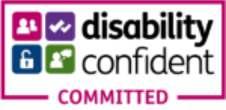

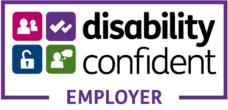

Good practice guidance, and suggested ways of evidencing your own good practice
Sign off from our ambassadors with lived experience of disability within the workplace.
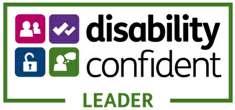





All statistics in this brochure were obtained from the sources below:
The Office of National Statistics report 2016.
ACAS
BBC News
https://www.gov.uk/government/publications/disabilityfacts-and-figures/disability-facts-and-figures
Disability discrimination: key points for the workplace




http://www.acas.org.uk/index.aspx?articleid=5565
http://www.bbc.co.uk/news/av/business39040760/the-power-of-the-purple-pound-explained
































